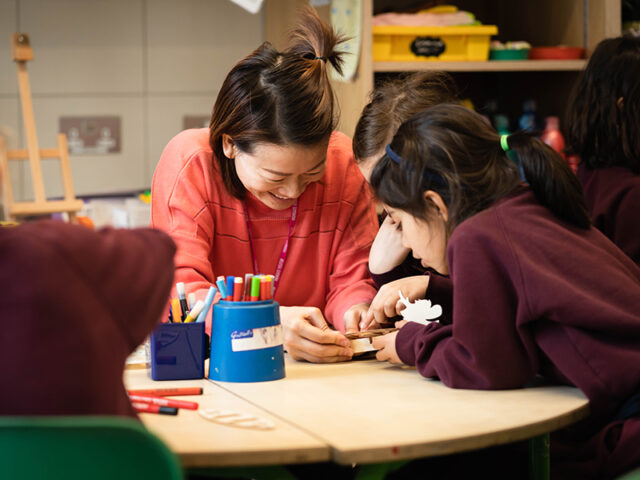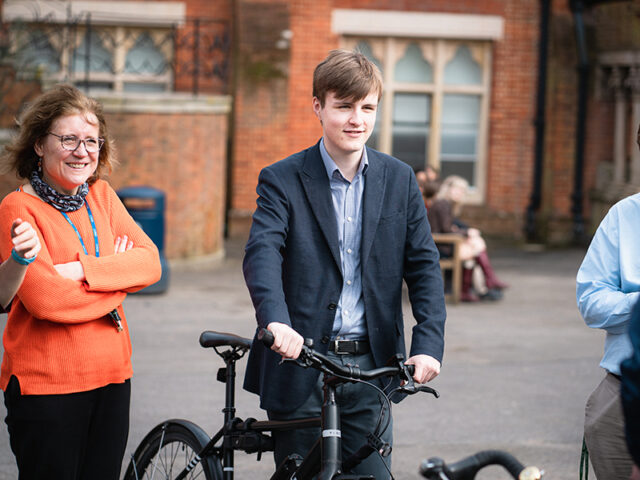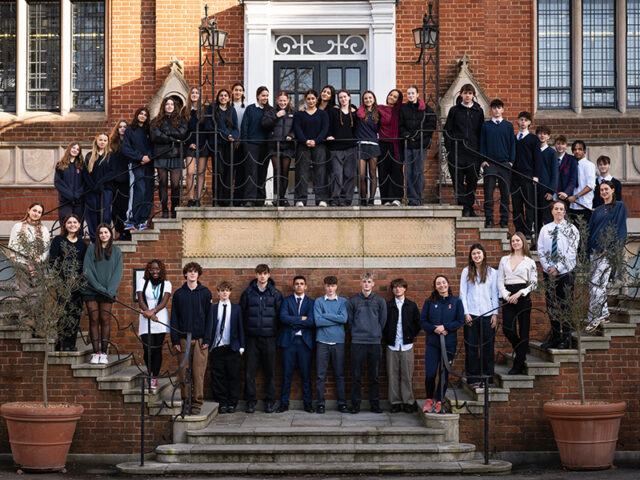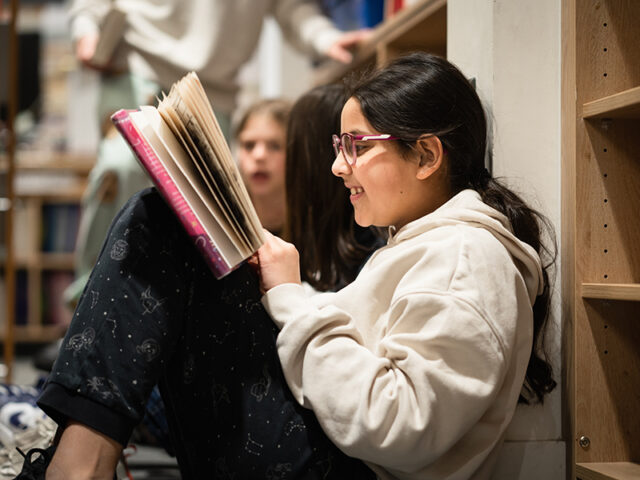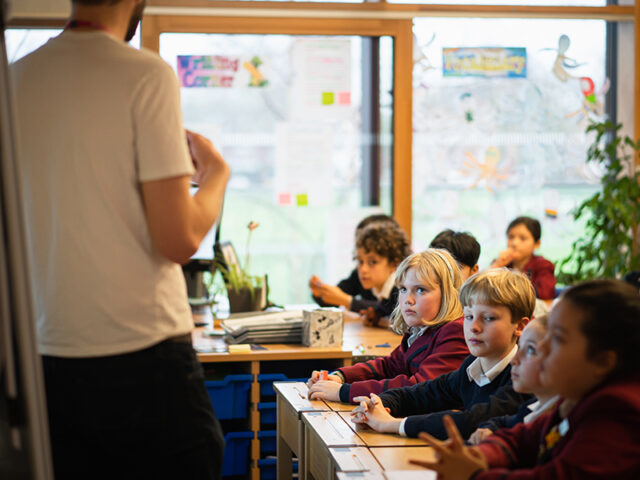Highgate’s flagship eco-campaign, Fast Fashion-Free February – now in its fifth year – launched today with a lunchtime ‘crafternoon’ session.
 This month-long programme is designed to encourage our school community, and others around the country, to reconsider their shopping habits and opt for ethical fashion choices instead. Last year the campaign was recognised in The Week Independent School’s Guide, Best of the Best feature, for ‘Inspiring Green Initiatives’.
This month-long programme is designed to encourage our school community, and others around the country, to reconsider their shopping habits and opt for ethical fashion choices instead. Last year the campaign was recognised in The Week Independent School’s Guide, Best of the Best feature, for ‘Inspiring Green Initiatives’.
“The fashion industry is the world’s second largest polluter, after oil and gas,” explains Sarah Mynott, Lead Teacher for the Environment at Highgate and co-founder of the campaign.
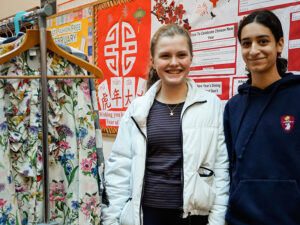
“Fast fashion can be very tempting,” admit Mia and Daphne from the Senior School pupil environment committee, “it is easy to be drawn in by the low prices and constantly changing stock of brands such as Boohoo, H&M, and Forever 21.”
“However, much of their clothing is made from synthetic materials (such as polyester) which can take centuries to biodegrade, while the dyes and chemicals used in the manufacture of fabric often directly contribute to water pollution,” they explain. “Other issues resulting from the cheap, rapid manufacture of clothes include the exploitation of workers in lower-income countries and the widespread use of toxic pesticides.”
“It is something that all of us can do something about,” Ms Mynott continues, “ranging from buying fewer clothes and boycotting fast fashion brands, to buying second-hand or ethically-sourced clothing, to simply looking after our clothes and repairing them when they get damaged.”
Having started at Highgate 5 years ago as a ‘Swap Shop’ event, Fast Fashion-Free February (FFFF) has grown year on year with a range of events for Pre-Prep to Sixth Form pupils. Activities this year include ‘Crafternoons’ to encourage mending/upcycling current clothing; a Q&A with Highgate OC Charlotte Kaye who runs her own sewing and textile business; a talk from Y13 pupil Mia at Geography Society about the worrying trend of ‘ultra-fast fashion’; a sustainable non-uniform day; assemblies about ‘ethical consumption’ written and delivered by sixth form pupils; an ‘oldest item of clothing’ competition to promote longevity of clothing; and a whole-school charity Swap Shop.
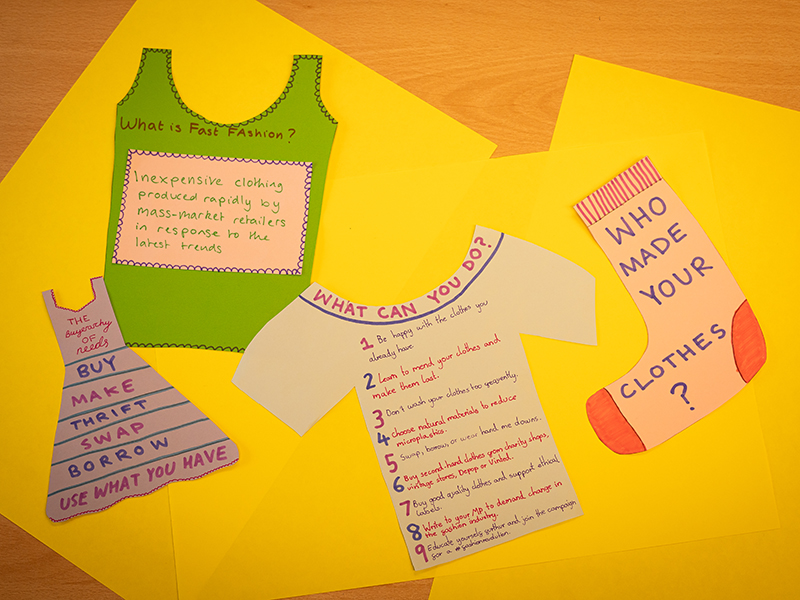
The London Schools Eco Network (LSEN) and UK Schools Sustainability Network (UKSSN) are promoting the campaign to eco-reps at member schools across the country. Mia, who represents Highgate at the LSEN meetings, explains: “It is great to see so many schools getting involved this year. I get to help other Eco Committees by sharing what events we have held at Highgate, and I also get inspired by lots of new ideas that they come up with!”
“The more schools that take part, hopefully the more young people will consider the impact of their clothing choices and develop more sustainable habits that they will stick to.”
The Senior School Environment Committee, who are leading the campaign, have offered some top tips for Fast Fashion Free February:
- Learn to mend your clothes and make them last
- Swap, borrow or wear hand-me-downs
- Buy second-hand clothes from charity shops, vintage stores, Depop or Vinted
- When you do buy new clothes, look for ethical labels or organic natural plant fibres
- Educate yourself more and join the campaign for a #fashionrevolution!
